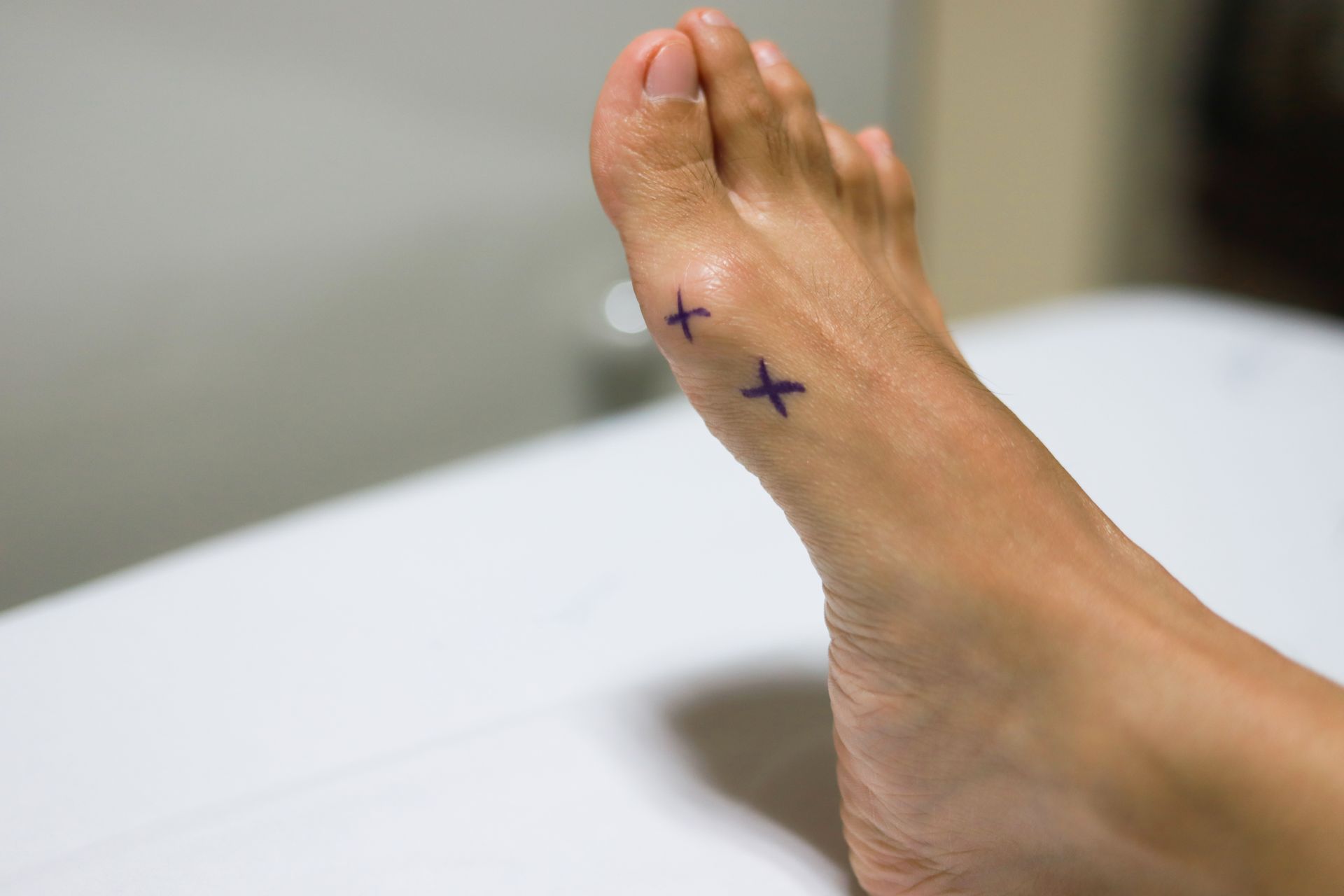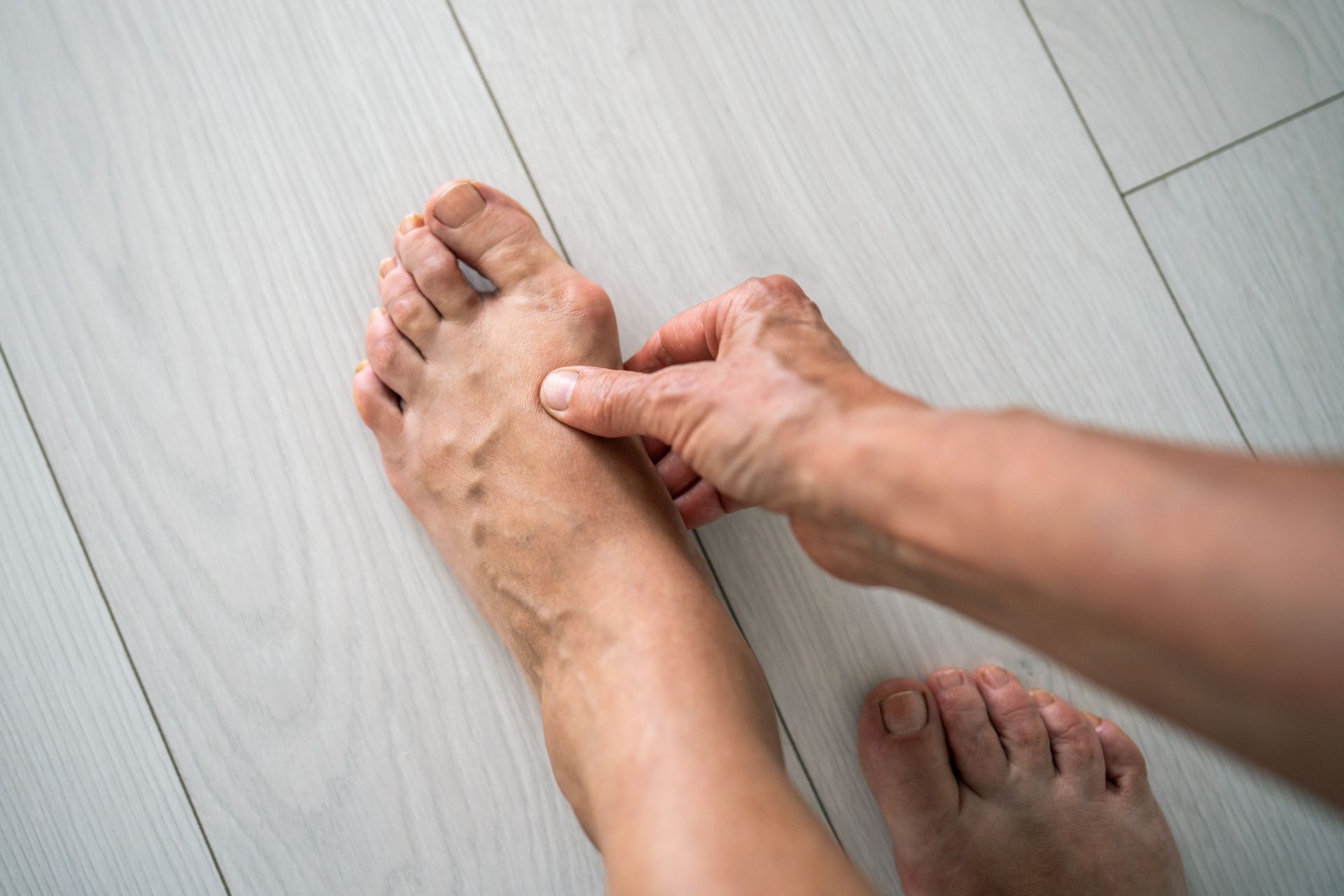Do I Have Morton's Neuroma?
Pain along the ball of the foot is a very common complaint among podiatry patients, and Morton’s Neuroma is one of the most frequent causes of pain in the forefoot. A neuroma is a benign condition resulting from a pinched, swollen nerve usually occurring in front of the third and fourth toes. However, they can also occur between the second and third toes.
What Causes a Morton's Neuroma?
The most common inciting factors for a Morton’s Neuroma are high-heeled and narrow or pointed-toe shoes. Activities that put pressure on the ball of the foot like running, ballet and soccer can also contribute to the development of a neuroma, as can a sudden increase or change in overall physical activity.
Symptoms of a Morton's Neuroma
Localized burning, tingling and numbness are common symptoms of a Morton’s Neuroma. Aching and even sharp pain can also be present. The pain is usually localized between the affected toes and can radiate into to adjacent portions of the third and fourth toes. Patients frequently report a “bunched sock” sensation or the feeling of walking on pebble.
Physical Examination for Morton's Neuroma
There is a physical examination test that foot specialists use to help diagnose a Morton’s Neuroma called Mulder’s Sign. This test involves pushing up with the opposite thumb on the bottom of the foot in the area of the pain and squeezing the foot side-to-side with the other hand. Feeling a click or eliciting the pain is considered a positive test and often indicates the presence of a neuroma.
When do I See a Foot Specialist for a Morton's Neuroma?
Common reasons for seeing a specialist for a neuroma include failure to improve with home treatments , worsening of pain on the ball of the foot, and noticing changes to the foot such as development of hammertoes or visible swelling in the painful area. There are also other potential causes for pain on the ball of the foot. Some of the differential diagnoses for Morton’s Neuroma are stress fracture, tendinitis, metatarsalgia, hammertoes and plantar’s wart.
Morton's Neuroma Treatment in Baton Rouge
If you are suffering from forefoot pain and believe a neuroma may be to blame, it is important to seek the care of a skilled podiatrist. A foot and ankle specialist can not only confirm the appropriate diagnosis, they can also help develop a treatment plan that is most likely to bring relief. For patients in the Baton Rouge area, Dr. Patrick Hall offers diagnosis and treatment of all major conditions which may impact the lower extremity, including Morton’s Neuroma. Contact our office to request a consultation .


